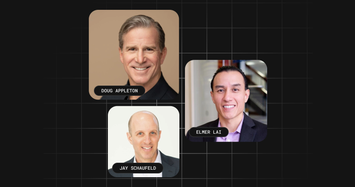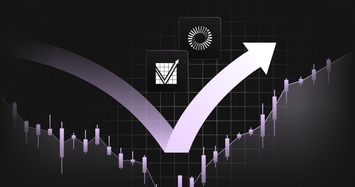
Our CEO Raj Verma was honored to represent SingleStore as part of its first delegation to the World Economic Forum in Davos, Switzerland.
During and leading up to the Annual Meeting, Raj shared his insights with the broader World Economic Forum community: What’s “modern data” and how can it be used to help vulnerable people? and 3 ways to keep pace with the real-time data revolution.
Below are excerpts from a conversation with Raj about his time in Davos:
Raj, what was your take on the issues addressed in Davos?
Raj: As we all recognize, there are a lot of important and urgent issues that the world is facing today. Inflation and macroeconomic uncertainty are just a couple of the near-term challenges we face. Recognizing the uncertainty in the world, I thought I might come away with a greater sense of alarm, but instead the discussions I had over the course of the week with a wide range of people, from industry, government and from all parts of the world, left me energized and optimistic for the future. In large part because when there are problems in the world, new businesses are created to solve them. The problems we face are vast and compounding, but they are indeed solvable.
You participated in a panel, “Start-ups in Austerity,” which was live streamed to the world. Was there one key point you wanted to come across?
Raj: More than one, but I wanted to make it very clear that SingleStore and the database industry is well positioned overall. The amount of modern data in our world today is unprecedented and there is a true need for real-time solutions. For that reason, even in this time of uncertainty, particularly for many tech start-ups, I am optimistic about our future as we have always prioritized business fundamentals.
Forecasting and long term planning have always been important to us. And I’d encourage other founders in our industry and across the start-up ecosystem to focus on fundamentals as well, which will help them endure and prosper in the good times and the bad.
Something else you discussed on your panel was this dichotomy between incumbents and innovation — specifically the question of will industry incumbents find innovation first or will innovators find distribution quicker. What did you mean by that?
Raj: This is a seminal question for entrepreneurs and investors. And what I mean by this question is how can innovators grow without getting ahead of themselves and how can established players innovate without being too risky, as they must satisfy shareholders and a wider range of stakeholders than an earlier stage company.
There is a way to find a balance between the strengths of incumbents and the strengths of innovators. While SingleStore is certainly an innovator in our industry, costs and revenue have never not mattered. However, caring about those basics doesn’t mean you should neglect innovation. By being innovative and constantly asking what would we do differently if we were to start SingleStore today instead of in the past, we stay ahead of the curve and preserve the ability to grapple with the new problems that appear in front of us.
As you come back to San Francisco, did you leave Davos with any ideas for SingleStore specifically?
Raj: Of course, the job of a CEO is to think ahead and consider how to make things better. Our goal at SingleStore has always been to build the fastest and most powerful database on the market. Whether for large scale problems like halting financial crime and cyberattacks, or small scale daily uses, like ensuring your Uber drops you off at the office in time for your first meeting of the day, massive amounts of data need to be processed and analyzed in seconds to power society.
One thing I am thinking about is how we can leverage SingleStore for optimizing health: with the launch of wearables and new technologies for monitoring sleep, heart rate and other indicators — how can SingleStore be part of the solution in not just storing people’s health data, but creating actionable insights for people to leverage.
If you had to write a headline for your week in Davos, what would it be?
The headline would be "Humans in Davos." The human connections I made surprised me in such a good way. I grabbed a hot tea on the street alongside a Pakistani man also enjoying a tea. India and Pakistan aren't always the best of friends, yet we had the most delightful conversation.
It was both warm and meaningful. I had so many interactions like this; with people who were interested in learning and want to leave a mark on the world — not by exploiting it, but by making it better. The human spirit that I felt in Davos, one that is kind, gentle and ready to give back, added to my spirit of optimism.
Sum up your experience in three words.
Raj: Energizing, hopeful… and freezing.
Thanks, Raj!
See more from Raj Verma:








